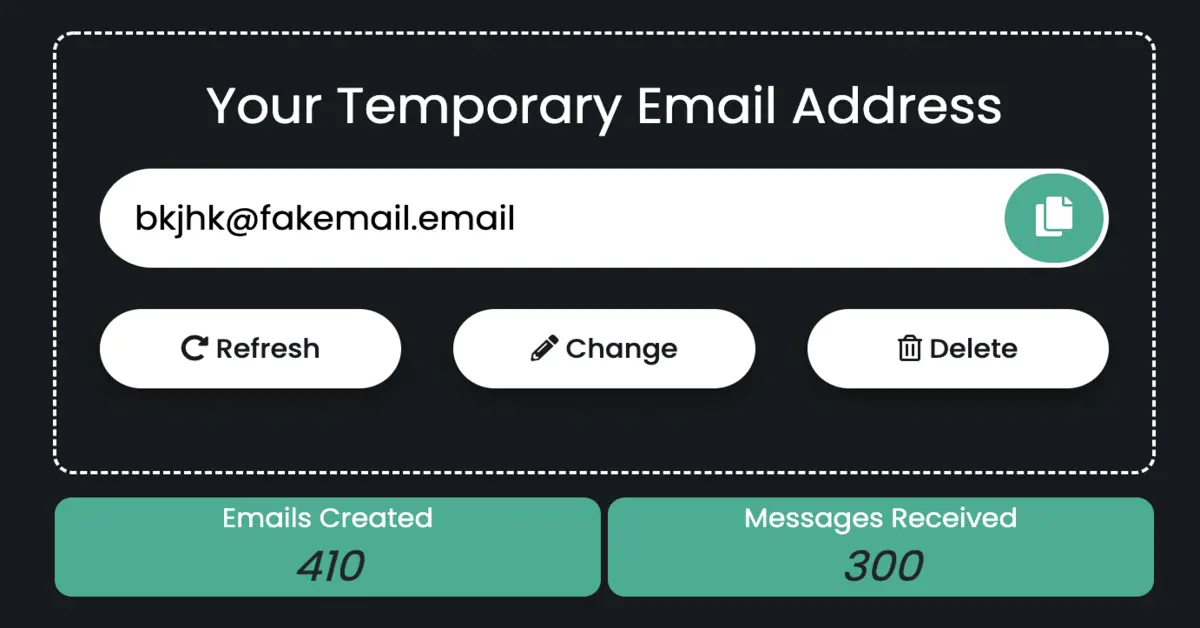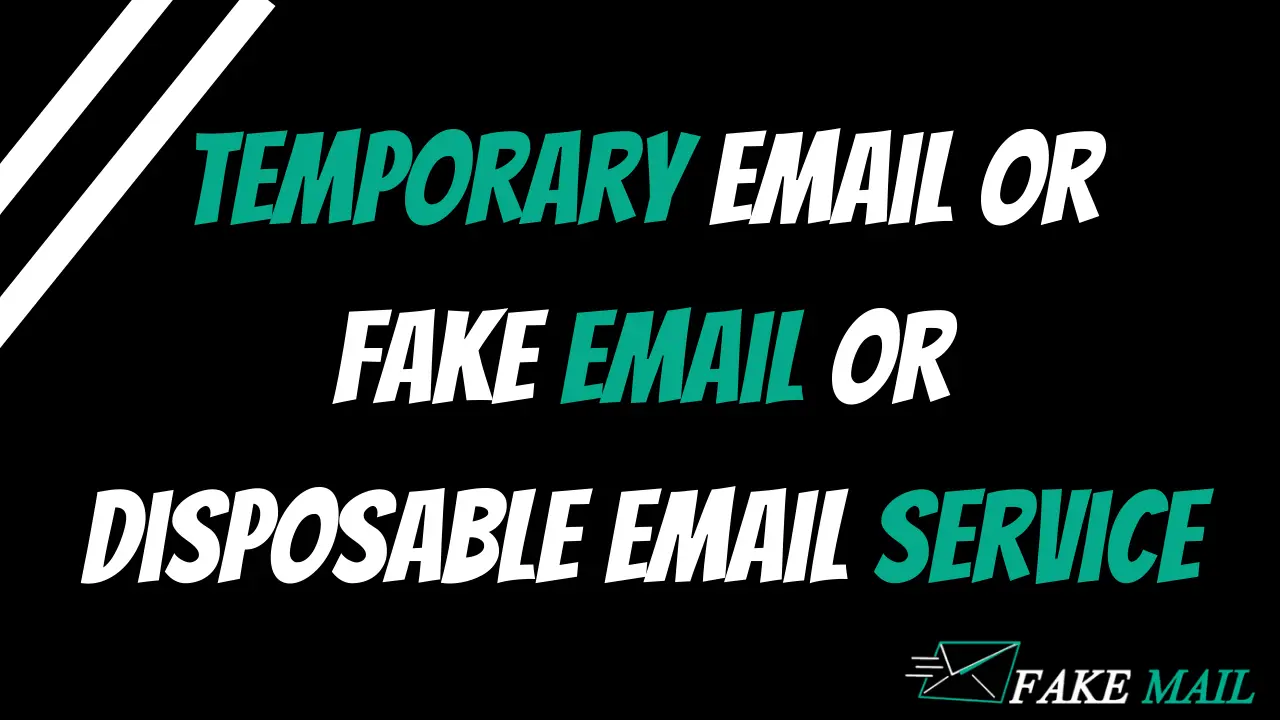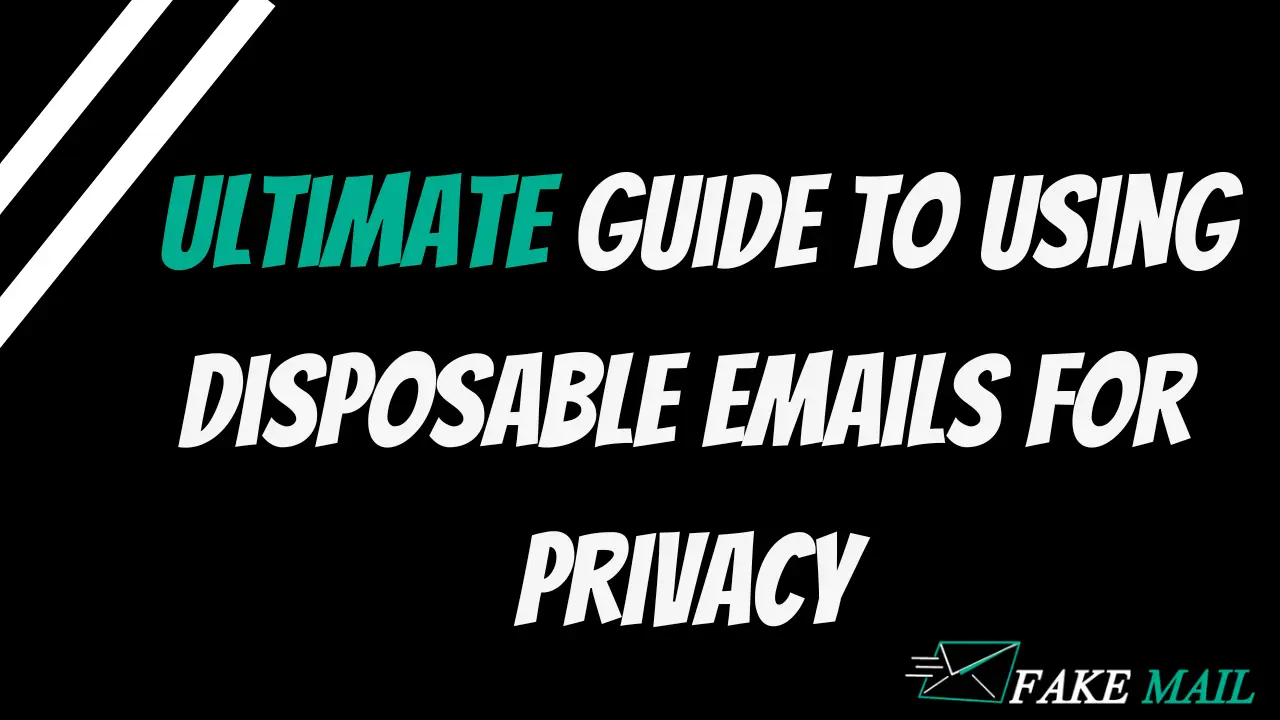You've just discovered an exciting new online service and you're eager to sign up. But wait! You hesitate at the thought of your primary email getting bombarded with promotional emails, or worse, phishing attempts.
Enter the world of disposable email addresses and temporary email services, your knights in shining armor.
They act as a buffer, keeping your personal email address clean and secure. However, as convenient as they are, it's important to explore the limitations of using such temporary email solutions.
The Reality of Temporary Email Services
At first glance, temporary email services seem like a dream come true. They allow quick email verification without the hassle of revealing your real email address. They're perfect for signing up for forums, newsletters, and free trials.
But hold on—these services have their limitations, and it's crucial to know them before making these temporary addresses your go-to solution.
Limited Functionality
Let's compare Guerrilla Mail and Yahoo Mail. While Guerrilla Mail offers the basic functionality of a temporary email service, it lacks the advanced features that come with a primary email provider like Yahoo Mail.
Think about things like advanced search, folder organization, and so on. Guerrilla Mail gives you a temporary mailbox for basic email functions but doesn't compare to the robust features of Yahoo Mail.
Risk of Data Loss
The ephemeral nature of services like Guerrilla Mail means they are not meant to keep important email secure for the long term. These temporary mailboxes automatically delete messages after a certain period.
So, if you're using a temporary email service for something critical, think again! The risk of losing important emails is quite high.
Inability to Recover Passwords
One of the most glaring limitations of using a disposable email address is the inability to recover passwords. Imagine signing up for an important service using a disposable email address service and then forgetting the password.
You're out of luck because most disposable and temporary email addresses are not permanent. Password recovery generally involves email verification, and if your temporary email address has expired or been deleted, you can't regain access to your account.
This is why it's vital to use a primary email address for accounts that you may need to recover in the future.
No Comprehensive Spam Filtering
While the main draw of a disposable or temporary email is to avoid spam, ironically, these services often lack comprehensive spam filtering.
Unlike real email addresses that come with advanced spam filters and categorization, disposable email services generally offer a basic inbox with limited or no spam filtering.
This makes it hard to separate the wheat from the chaff if you happen to get inundated with junk mail.
Lacks Personalization
If you're someone who likes to have your emails neatly organized into different folders or categories, temp mail services might disappoint you.
Unlike your personal email address where you can flag, tag, and categorize incoming email, temp mail services offer a one-size-fits-all inbox.
This lack of personalization can be limiting, especially if you're someone who juggles multiple email addresses for different purposes.
Online Privacy Concerns
When it comes to online privacy, not all disposable email services are created equal. While the primary objective of using a disposable email service is to protect your real email addresses, some services might not offer robust privacy features.
There are cases where these services log IP addresses or have less-than-secure connections, exposing you to potential privacy risks. It's crucial to scrutinize the online privacy policies of the disposable email service you choose to use.
Not Suitable for All Types of Verification
As more online services become savvy to the widespread use of disposable and temporary email addresses, they've adapted their verification methods to block these types of accounts.
Whether it's a financial service or a social media platform, many online services now require a valid, non-disposable address for email verification and validation. This makes temporary or disposable addresses less useful for a wide range of important sign-ups.
Cannot Handle Multiple Accounts Efficiently
If you're managing multiple accounts for work, personal use, or other specialized needs, temporary email services like burner mail or throwaway email addresses fall short.
They lack the features and organizational tools that primary email services offer for managing multiple email addresses efficiently.
The inbox is often a mix of messages for various accounts, making it challenging to navigate and manage effectively. For such complexities, relying solely on disposable email addresses isn't advisable.
No Support for Promotional Emails or Email Marketing
If you're keen on receiving promotional emails from brands you love or you're involved in email marketing, disposable email addresses are not the way to go. The transient nature of these services means you could miss out on limited-time offers, special promotions, or vital marketing metrics.
Most of these temporary services don't support features like sorting or categorizing, making them ill-suited for email marketing activities. Moreover, they aren't designed to be a part of an organized email list, making tracking and analytics a challenge.
How FakeMail Addresses These Drawbacks
FakeMail stands out from other disposable email services by offering features that address many of the aforementioned limitations. Here's how:
- Online Privacy: FakeMail places a high priority on user privacy, making sure your IP address and other personal information are secure.
- Verification & Validation: Unlike other temporary services that get flagged during email verification, FakeMail is designed to circumvent such pitfalls, making it suitable for a broader range of online services.
- Efficient Multiple Account Management: FakeMail provides a more organized interface compared to other temporary email services, allowing for easier management of multiple accounts and email addresses.
- Advanced Spam Filtering: FakeMail incorporates better spam filtering technologies, ensuring that you get only the emails you want to see, separating it from the sea of junk mail and spam.
While FakeMail is a standout for these features, it's still important to remember that it's not a complete substitute for your primary email, especially for long-term or important communications.
However, it serves as a robust, feature-rich option for your disposable email needs, making it my go-to choice for temporary email services.
Choose FakeMail: A Smarter Way to Handle Temporary Emails
When navigating the digital world, temporary and disposable emails can be both a boon and a bane. While they offer a layer of privacy and act as a shield against unwanted spam, it's crucial to understand their limitations. Their basic functionalities, potential for data loss, and lack of comprehensive spam filtering can be significant drawbacks for long-term use.
FakeMail, however, addresses many of these limitations, offering advanced features that make it a robust choice for your temporary email needs. It's an ideal solution for quick verifications, testing out new services, or even managing multiple accounts efficiently. Yet, for crucial communications, especially those requiring security and storage, your primary email remains irreplaceable.
So, weigh the pros and cons, consider your needs, and choose wisely. Temporary email services like FakeMail can be your best friend or your biggest mistake depending on how you use them. Always assess the risks and benefits before diving in.



